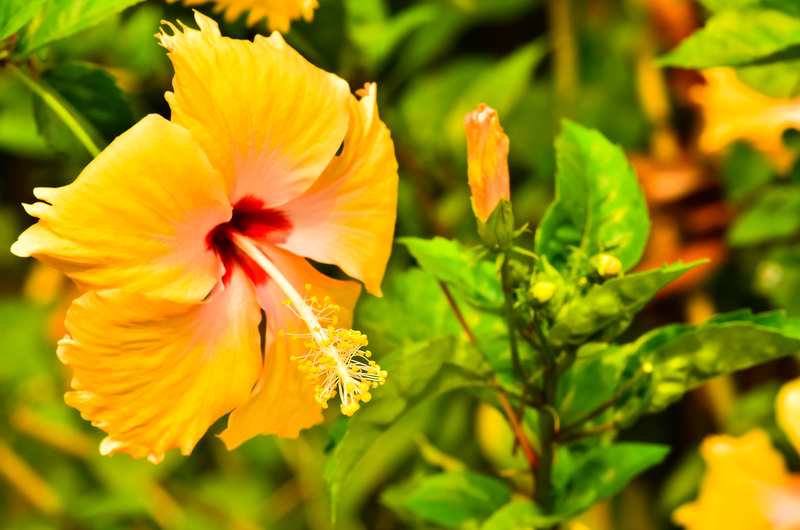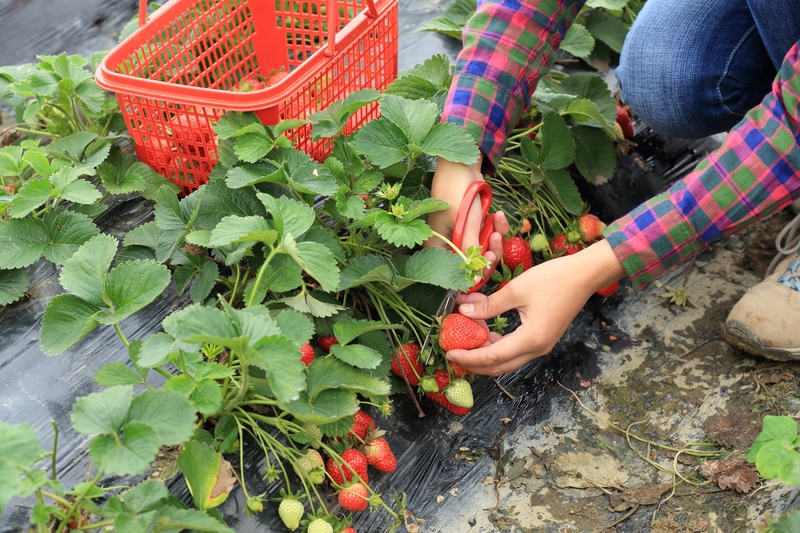Plant the Seeds of Success: 9 Essential Tips for New Garden Enthusiasts
Posted on 22/08/2025
Plant the Seeds of Success: 9 Essential Tips for New Garden Enthusiasts
Are you a new gardener eager to cultivate a thriving, beautiful garden? Congratulations on starting this exciting journey! Whether you have an urban balcony, a backyard plot, or a windowsill for indoor plants, the principles of successful gardening apply to everyone. This comprehensive guide covers nine indispensable gardening tips to set new enthusiasts on the path to garden success. Start your green adventure and plant the seeds of success today!
1. Assess Your Garden Space
Every successful garden starts with a strong foundation: understanding your space.
- Location: Observe how much sunlight your area receives. Most vegetables and flowers need at least 6-8 hours of direct sunlight.
- Soil Quality: Test the soil for pH, nutrients, and texture. Local extension offices or garden centers often offer affordable testing.
- Drainage: Check if water drains efficiently. Poor drainage leads to root rot, while excessive dryness calls for soil improvement.
Tip: Take pictures throughout the day to record sunlight patterns and identify the best gardening zones in your space.
Choosing Between Containers and In-Ground Beds
- Container gardening is excellent for small spaces, renters, or those with poor soil.
- Raised beds offer more control over soil quality and are great for beginners.
- Traditional ground beds are ideal for larger plots and provide long-term growing solutions.

2. Choose the Right Plants for Your Climate
To plant the seeds of success in the garden, pick plants that thrive in your region's climate and season. Selecting appropriate species reduces maintenance and maximizes yield.
Understanding USDA Hardiness Zones
- Refer to your local USDA Hardiness Zone or equivalent for your country. This identifies which plants will survive year-round outdoors.
- Annuals (e.g., zinnias, tomatoes) complete their life cycle in one season, while perennials (e.g., lavender, daylilies) return year after year.
Pro Tip: Start with easy-to-grow plants like marigolds, lettuce, radishes, or sunflowers for early success and confidence building.
3. Prepare and Enrich Your Soil
Healthy plants start with healthy soil. The right soil composition provides essential nutrients, holds water, and drains excess moisture.
- Loamy soil -- a balanced mix of sand, silt, and clay -- is ideal for most garden plants.
- Add organic matter: Work in compost, aged manure, worm castings, or leaf mold to improve texture and fertility.
- Avoid chemical fertilizers for beginners; organic amendments are more forgiving and healthier for soil life.
Tip: Mulch your beds with straw, bark, or compost to retain moisture, suppress weeds, and moderate soil temperature.
4. Master the Art of Watering
Proper watering is crucial for garden success--too little or too much can lead to plant stress and poor growth.
How to Water for Best Results
- Water deeply, but less often. This encourages deep root systems.
- Morning is best: Reduces evaporation and lowers the risk of mildew or fungal diseases.
- Use a soaker hose or drip irrigation for efficient, targeted watering.
- Check soil moisture by sticking your finger 2-3 inches into the soil; water if it feels dry at that depth.
Tip: Group plants with similar water requirements together to make irrigation easy and efficient.
5. Feed Your Plants Strategically
Understanding when and how to fertilize will help you nurture your budding garden effectively.
- Slow-release organic fertilizers, like compost or fish emulsion, release nutrients over time and are safe for new gardeners.
- Foliar feeding (spraying diluted fertilizer on leaves) can give plants a boost mid-season, especially for leafy greens.
- Over-fertilization can burn plants and harm soil--always follow suggested application rates.
Note: Most native plants require less fertilization than non-native or high-yield varieties.
6. Start Small and Tidy
Ambition is wonderful, but small, contained garden spaces have a higher success rate for beginners. A manageable garden is easier to maintain and less likely to be overwhelmed by weeds or pests.
- Begin with a 4'x4' or 4'x8' bed, or a handful of containers.
- Keep pathways clear and beds weeded regularly for a neat, inviting space.
- Label plants with stakes or tags to keep track of varieties and needs.
Tip: Keep a dedicated set of garden tools and gloves handy for easy upkeep, and regularly clean your tools to prevent disease spread.
7. Monitor for Pests and Diseases
Healthy gardens can still attract pests and diseases, but early intervention is key to preventing major issues.
- Scout your garden every few days. Look for chewed leaves, discoloration, mold, or unusual pests.
- Encourage natural predators: Ladybugs, lacewings, spiders, and birds help control pests.
- Use barriers like row covers or netting, and practice crop rotation each season to minimize recurring problems.
- If needed, opt for organic, plant-based sprays or hand-picking pests over chemical solutions.
Tip: A diverse garden with a mix of flowers and veggies is less likely to be ravaged by any single pest or disease.
8. Record Your Progress and Learn
One of the best ways to cultivate garden success is to keep a garden journal or log.
- Track planting dates, germination times, harvest yields, successes, and setbacks.
- Record weather patterns and pest outbreaks for better planning next year.
- Take photos weekly--visual records help spot progress and problems early.
Tip: Join local or online gardening communities. Sharing tips, asking questions, and learning from experienced growers accelerates your own knowledge and enjoyment!
9. Embrace Patience and Perseverance
Great gardens aren't built in a season. Sometimes seeds fail, weather surprises you, or pests challenge your patience. Every setback is a learning opportunity on the road to gardening excellence.
- Celebrate small victories: The first sprout or bloom is a milestone worth enjoying.
- Don't fear mistakes: Gardening is trial and error. Even experienced gardeners learn something new each year.
- Keep experimenting. Try new plant varieties, designs, or methods in small sections before committing to large changes.
Remember: Gardening is a journey that grows with you. Each season brings fresh lessons and new rewards.

Extra Garden Success Tips for Beginners
- Read plant tags and seed packets carefully for spacing, sunlight, and care requirements.
- Invest in quality hand tools (trowel, pruners, watering can, gloves)--good tools last longer and make gardening a joy.
- Choose a few favorite flowers to add color, attract pollinators, and create joyful harvest bouquets.
- Compost kitchen scraps. Making your own compost reduces waste and enriches your soil naturally.
- Visit your local botanical garden for inspiration and to see which plants thrive in your region.
Conclusion: Start Planting the Seeds of Success Today
Whether you're hoping for a bounty of vegetables, a colorful flower bed, or lush houseplants, these 9 essential gardening tips offer a strong foundation for new gardening enthusiasts. Assess your space, choose plants wisely, prepare excellent soil, and remember: patience is part of every gardener's toolkit.
Every seed you plant is a promise of beauty and sustenance to come. Start small, learn as you grow, and enjoy every rewarding moment in your thriving garden paradise. Plant the seeds of success within yourself and in the soil!
Ready to Start Your Garden Adventure?
Click here for more gardening guides, plant recommendations, and resources to support your journey from beginner to garden expert!

